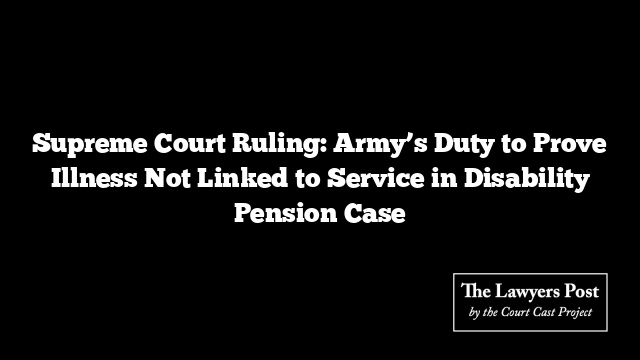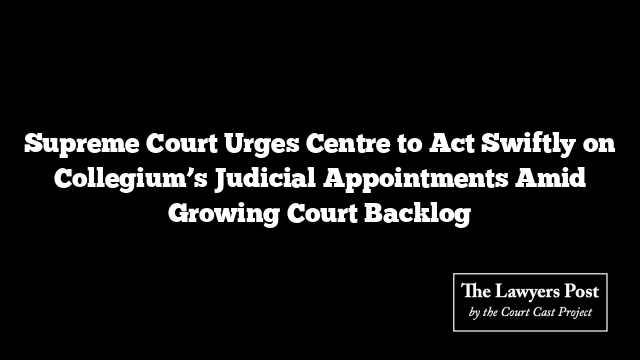In a significant ruling, the Supreme Court has granted disability pension to an army veteran who was discharged after developing schizophrenia while in service. The court emphasized that disability pension, as outlined in the Pension Regulations for the Army, 1961, should be interpreted in a way that benefits the serviceman, and it cannot be denied without valid reasoning.
The veteran, who had enlisted in 1988, was diagnosed with schizophrenia during his time in the Indian Army and was discharged in 1998. Despite the diagnosis, a Medical Board concluded that his condition was hereditary and unrelated to his military service, a finding that led to the rejection of his pension claim by the Controller of Defence Accounts (Pensions), which was later upheld by the Armed Forces Tribunal (AFT).
However, the veteran appealed the decision, arguing that the medical board’s opinion was flawed and arbitrary, as it lacked any clear explanation for why the illness was considered unrelated to his service. His argument rested on the fact that he had been medically fit at the time of enlistment and that the illness had manifested during his service. Therefore, the burden of proof should have rested with the authorities to show that the illness was not connected to his time in the army.
The court found merit in the veteran’s appeal, stating that the authorities failed to prove their case. It noted that since the veteran was discharged due to his mental illness, the burden of proof shifted to the army to demonstrate that the illness was not service-related. Furthermore, the court emphasized that the opinion of the Medical Board should have been supported by clear reasoning, especially since the illness developed after several years of service.
Justice Singh, in his judgment, observed that the Medical Board’s conclusion lacked clarity and failed to address why schizophrenia was considered a pre-existing condition or unrelated to the stresses of military service. The court also highlighted that the Medical Board’s decision could not be taken as final in the absence of adequate justification, as the veteran had not sought discharge himself but had been forced out due to his condition.
With this ruling, the Supreme Court set a clear precedent that the burden of proof lies with the authorities when denying disability pension claims, especially when the illness manifests during service and the individual was fit for duty upon enlistment. The appeal was, therefore, allowed, and the veteran’s claim for disability pension was upheld.




